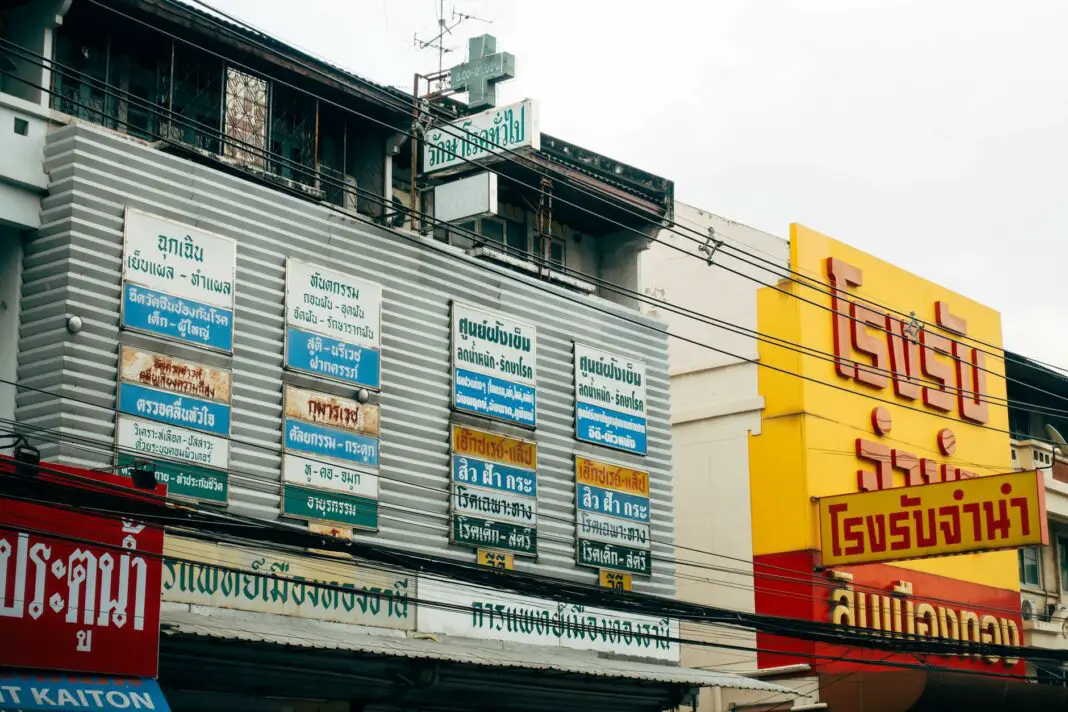Your adventure in Thailand can be deeply enriching, especially when you immerse yourself in its vibrant culture. One of the most captivating ways to explore the rich heritage of this Southeast Asian gem is through traditional Thai craft workshops. These workshops do not only offer hands-on experience but also provide fascinating insights into the history and meaning behind Thailand’s artistic expressions. If you are contemplating a trip to Thailand, you might want to consider the transformative experience that participating in these cultural workshops can provide. They are, without a doubt, among the ultimate cultural experiences available in this enchanting country.
In a land full of tantalizing flavors, breathtaking landscapes, and welcoming traditions, engaging in traditional crafts can enhance your understanding of Thai life. From silk weaving to pottery making, these workshops are thoughtfully designed to connect you with local artisans. The knowledge shared during these sessions goes beyond surface-level interactions; it paves the way for deeper connections and unforgettable memories. Dive into this journey of exploration as we delve into various aspects of Thailand’s traditional craft workshops and why they must be on your cultural itinerary.
- What Are Traditional Thai Crafts?
- Benefits of Participating in Workshops
- Popular Traditional Crafts to Explore
- How to Choose the Right Workshop
- Planning Your Trip to Attend Workshops
- Cultural Impact of Craft Workshops
- Empowerment Through Traditional Crafts
- Embracing the Experience: Tips for Engagement
- Final Thoughts on Your Thai Craft Journey
- Frequently Asked Questions
What Are Traditional Thai Crafts?
Traditional Thai crafts encompass a wide range of artistic expressions that reflect the country’s rich cultural history and diverse influences. From exquisite silk textiles to vibrant pottery, each craft tells a unique story about the region’s traditions and the people who create them. Silk weaving, for instance, has been a prominent craft since ancient times, particularly in areas like Khorat and Chiang Mai, where the artistry is intricately tied to local heritage. Moreover, the lifelike wood carvings found in temples showcase Thai spirituality and craftsmanship, further enriching the diverse tapestry of Thai culture.
Participating in traditional craft workshops allows visitors to not only witness these arts firsthand but also engage with artisans who carry on age-old techniques. Each workshop serves as a portal into Thailand’s soul, offering a personal glimpse into how these crafts are made and the traditions they uphold. By learning directly from master artisans, workshop participants gain an appreciation for the cultural significance these crafts hold in Thai society and history.
Benefits of Participating in Workshops
The experience of engaging in traditional Thai crafts workshops can yield a plethora of benefits. Firstly, these workshops offer an educational journey where participants can acquire new skills. Imagine learning the art of delicate silk weaving or mastering the technique of intricate lacquerware—all while gaining insights into their historical context. Not only do these skills enhance creative abilities, but they also provide a sense of accomplishment and connection to the Thai culture.
Additionally, workshops promote cultural exchange and knowledge sharing. Interacting with local artisans fosters genuine connections that transcend borders, enabling participants to understand the nuances of Thai culture in an authentic way. These interactions often lead to lasting friendships and a deeper appreciation for Thailand’s diverse communities. Ultimately, participants leave with not just crafted pieces, but also cherished experiences and stories that enrich their travels.
Popular Traditional Crafts to Explore
A multitude of traditional crafts await discovery in Thailand, each offering its own story and unique process. For those fascinated by fabric and design, silk weaving in Chiang Mai is a must-try. Participants can learn to weave beautiful patterns while understanding the significance of colors and designs derived from Thai culture. Likewise, pottery workshops in Sukhothai allow hand-on experience in creating traditional earthenware, merging creativity with history, thus providing a tactile narrative of Thai artisanry.
Another captivating craft is the intricate art of Khon mask making, where participants delve into the world of traditional Thai dance. This craft not only celebrates artistic expression but also enhances cultural literacy as participants absorb the stories behind the characters represented in the masks. Whether it is wood carving, basket weaving, or fabric dyeing, each craft workshop is a chance to embrace creativity while making a connection to Thailand’s rich cultural heritage.
How to Choose the Right Workshop
When selecting a traditional Thai craft workshop, consider your interests and the type of experience you seek. Research various workshops beforehand, looking for insights on artisan backgrounds and the specific techniques taught. Ensure that the workshop fosters an environment of learning and cultural exchange where artisans welcome questions and curiosity. Reviews and testimonials can also help gauge the authenticity and quality of the experience.
Consider locations that resonate with you. Certain areas, like Chiang Mai for silk weaving or Ayutthaya for pottery, have unique specialties tied to their regions. Verify workshop duration and group sizes to find a setup that suits your preferences—smaller groups often enhance personal interaction and engagement with the craft. Ultimately, choosing the right workshop enhances your overall cultural experience in Thailand and deepens your connection to its artisanal traditions.
Planning Your Trip to Attend Workshops
To fully embrace the wonder of traditional Thai craft workshops, thorough planning is essential. Begin by determining your travel dates based on the local craft calendar, as certain workshops may only run during specific seasons or festivals. Creating an itinerary that allows ample time for crafting immersion alongside exploring the breathtaking landscapes, temples, and local markets of Thailand can enhance your overall experience.
Next, book your workshops in advance to secure your spot, especially during peak tourist seasons when demand may be high. Engage with local tourism offices or guides for recommendations and to learn about lesser-known workshops that foster direct engagement with artisans. Remember to incorporate flexibility into your plans, allowing for spontaneous discoveries as you sightseeing and explore the vibrant life of Thailand.
Cultural Impact of Craft Workshops
Participating in traditional craft workshops has a profound cultural impact beyond individual experience; it supports the preservation of valuable cultural heritage. By taking part, visitors contribute to the sustainability of age-old crafts that might otherwise dwindle due to modernization and changing societal trends. Artisans benefit from a steady stream of interest and income, empowering them to continue their traditions and pass them on to future generations.
Moreover, craft workshops serve as platforms to raise awareness about Thai culture and its rich artistic traditions. As participants return home, they share their experiences, stories, and crafted pieces, fostering curiosity and appreciation for Thailand among friends and family. This ripple effect cultivates a greater understanding of the cultural diversity that exists within the world, promoting respect and admiration for different artistic expressions.
Empowerment Through Traditional Crafts
Engaging in traditional crafts can be a transformative experience not just for participants, but also for the artisans involved. Workshops empower artisans by providing a platform to showcase their skills and share their stories. This not only elevates their status within the community but also encourages other locals to embrace their own cultural heritage, fostering pride and continuity in these artisanal skills.
Furthermore, craft workshops can play a significant role in economic development by promoting local artisans and their products. Increased interest in crafts can lead to better livelihoods, enabling artisans to invest in their craft and personal development. In this way, crafting transcends mere hobby; it empowers individuals while ensuring that traditional skills endure, ultimately enriching the cultural landscape of Thailand.
Embracing the Experience: Tips for Engagement
To fully engage in your traditional craft workshop experience, approach each session with an open mind and a desire to learn. Actively participate, asking artisans about their techniques and the stories behind their crafts. This shows respect and genuine curiosity, creating a positive learning environment. Don’t shy away from experimenting and making mistakes; these are often the most valuable lessons in the crafting journey.
Document your experience through photographs and notes, capturing the moments that resonate with you. Sharing your journey on social media or blogging about it enhances both your understanding and the visibility of artisans’ work, encouraging others to explore Thai craft traditions as well. Ultimately, embracing every aspect of the workshop with zeal will lead to a richer cultural experience and lasting memories of your time in Thailand.
Your Ultimate Cultural Craft Journey Awaits in Thailand
A trip to Thailand transcends a mere vacation; it holds the potential for deep cultural enlightenment, especially through traditional craft workshops. These experiences enrich your understanding of Thai traditions, empower local artisans, and create lasting bonds between cultures. As you immerse yourself in the vibrant artistry of Thailand, each crafted piece you create tells a story, a story that connects you to this mesmerizing land forever. Your journey into the heart of Thai culture might just begin with the tools and techniques used by its timeless artisans.
Frequently Asked Questions
What is a Thai craft workshop like?
Thai craft workshops provide hands-on experiences where participants learn traditional techniques from local artisans. You’ll create items while gaining cultural insights.
How long do traditional craft workshops usually last?
Workshop durations can vary generally from a few hours to several days, depending on the craft and depth of instruction offered.
Can beginners join these workshops?
Absolutely! Most workshops cater to all skill levels, and artisans are happy to guide beginners through the processes.
Where can I find workshops in Thailand?
Workshops can be found in cities like Chiang Mai, Bangkok, and Sukhothai, often advertised by local tourism offices or on travel websites.
Do I need to book workshops in advance?
It’s recommended to book in advance, especially during peak travel seasons, to secure a spot in your desired workshop.
Image Credit: Pexels





